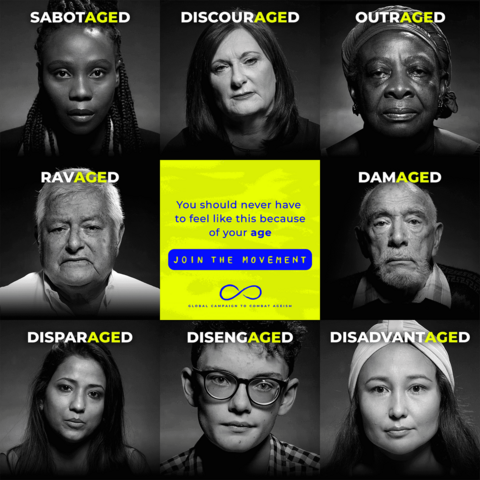Década do Envelhecimento Saudável nas Américas (2021-2030)
Área de ação I. Mudar a forma como pensamos, sentimos e agimos com relação à idade e ao envelhecimento
Apesar de todas as contribuições e ações que as pessoas idosas fazem e fizeram às suas comunidades e familiares, ainda existem muitos estereótipos (como pensamos), preconceito (como nos sentimos) e discriminação (como agimos) em relação às pessoas com base em sua idade. A discriminação por idade afeta pessoas de todas as faixas etárias, mas tem efeitos particularmente prejudiciais sobre a saúde e o bem-estar das pessoas idosas.
Com o apoio da OPAS/OMS, a Convenção Interamericana sobre a Proteção dos Direitos Humanos das Pessoas Idosas foi aprovada na Assembleia Geral da Organização dos Estados Americanos (OEA) em junho de 2015. A Convenção defende especificamente a importância de garantir:
- a independência e a autonomia das pessoas idosas
- o consentimento informado em relação à saúde
- o reconhecimento igualitário da lei
- a seguridade social, a acessibilidade e a mobilidade pessoal
- muitos outros direitos humanos fundamentais.
O valor dessas liberdades foi decidido por especialistas de várias regiões e vários países ratificaram esta Convenção, incluindo Argentina, Bolívia, Chile, Colômbia, Costa Rica, Equador, El Salvador, México, Peru, Suriname e Uruguai.
A adoção desta Convenção promove o compromisso econômico, social, político, educacional e cultural às pessoas idosas. Por exemplo, Costa Rica implementou com sucesso várias leis para reforçar ainda mais esses ideais. A “Lei Integral para as Pessoas Idosas em Costa Rica” garante que as pessoas idosas tenham "oportunidades iguais e uma vida digna". A "Carta de San José sobre os Direitos das Pessoas Idosas na América Latina e no Caribe" afirma a melhoria e o desenvolvimento de sistemas de proteção social para atender às necessidades das pessoas idosas, e a "Lei de Penalização do Abandono da Pessoa Idosa" garante que indivíduos que abandonam e negligenciam pessoas idosas receberão sérias acusações. É importante que os marcos legais em todo o mundo promovam e protejam ainda mais a população idosa vulnerável e em rápida expansão em seus respectivos países.


